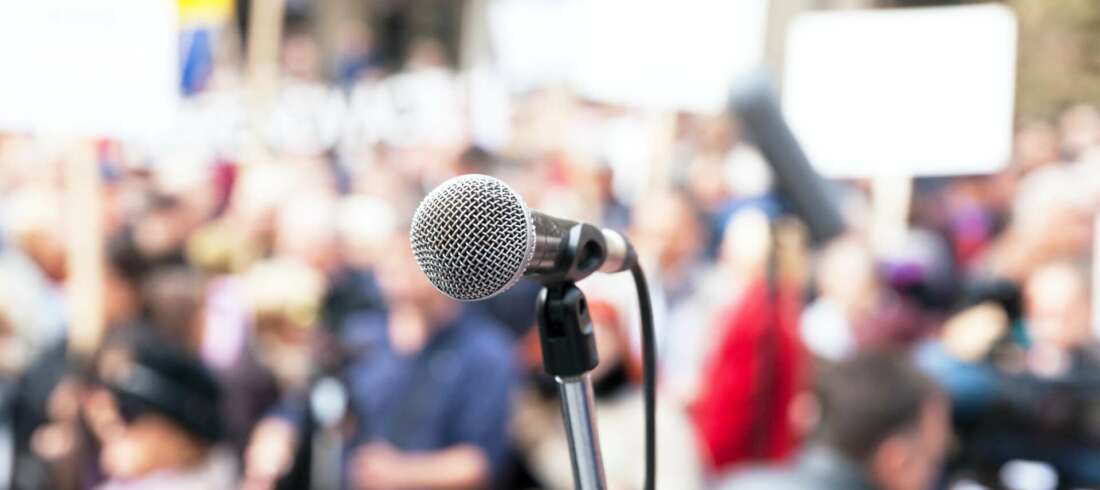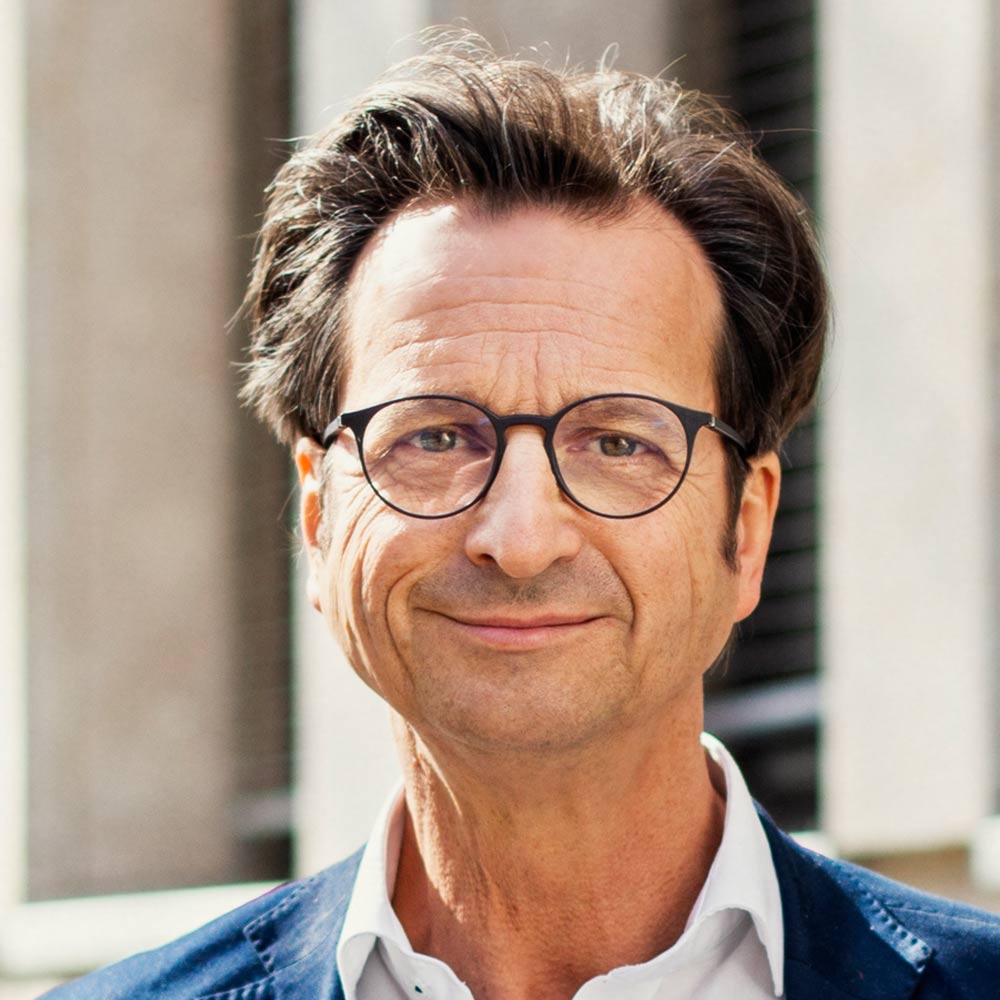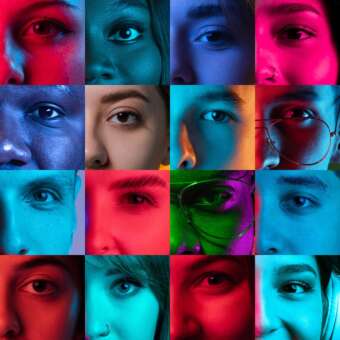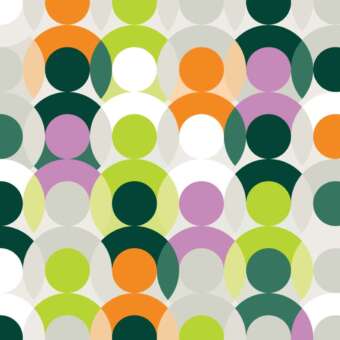Participation in the demonstrations against right-wing extremism is associated with the liberating feeling of regained power to act and a sense of belonging. Most demonstrators and their sympathizers hope that the movement will now continue. A kind of large and constant "wave of citizens" is to emerge that not only stands up against right-wing extremist activities, but also against everything that goes wrong in politics. 61%* of the population aged 18 and over in Germany agree with the statement that the demonstrations give them the feeling that something is moving in Germany and 29%* say that they will take part in future demonstrations against right-wing extremism and for democracy.
These are the key findings of a recent psychological and population-representative study by the rheingold Institute in Cologne on the psychological impact of the demonstrations against right-wing extremism in January 2024.
Remigration fantasies were a wake-up call
For many citizens, the media reports on the Potsdam Round Table, with its ethnic remigration fantasies, were a kind of wake-up call. "Demonstrators describe how this has shaken them out of the lethargy and passive-resignative mood they have felt in the face of the multiple crises in recent months," says psychologist and institute founder Stephan Grünewald. They would now like to see a similar activation from politicians. In the quantitative survey, 67%* believe that the demonstrations are a "wake-up call for politicians". The traffic light coalition has received a lot of criticism. The constant bickering within the coalition is annoying, unsettling and undermines trust. In the quantitative survey, 70 percent* agree with the statement: "The traffic light coalition strengthens the AfD through its disunity."
A long-missing social sense of unity
Standing up together against right-wing extremism and for democracy creates a long-lost sense of social unity. This sense of belonging is strengthened above all when people get into conversation with unknown like-minded people during the demonstrations. This sense of togetherness particularly strengthens people who felt politically homeless in the run-up to the demonstrations.
However, demonstrators also describe how their encouraging and comforting effect fizzles out again. They quickly feel trapped in their old everyday burdens again, thrown back on their own and powerless in the face of existing crises.
Vacillating between hope and worry
With regard to the social impact of the demonstrations, people vacillate between hope and concern. 62%* agree with the statement: "The demonstrations are good for social dialog." On the other hand, there are fears of social division - 47%* think that "the demonstrations reinforce social antagonism."
Some participants reported feeling uneasy and disturbed at the demonstrations when they were confronted with radical banners or slogans - many then no longer felt represented in their moderate democratic stance. At the same time, existing fears of a further radicalization of society were stoked. "These fears of division reinforce the longings of many voters for unity and community," says Grünewald. "This keyboard can then be taken up and played by ultra-right and nationalist parties."
Long version:
Feelings of powerlessness and a great longing for cohesion determine the mood of many voters in the run-up to the demonstrations
The participants and non-participants in the demonstrations against right-wing extremism share a common suffering. They feel trapped in an everyday life that is overshadowed by many crises. They repeatedly describe the feeling of being stuck in many problems and not really making any progress.
The basic feeling of many voters is characterized by a great sense of powerlessness in the face of multiple major and minor crises (war, corona, migration, inflation, radicalization of society) as well as a growing longing for tangible movement. Quite a few are driven by an increasingly concrete fear of war. They are also experiencing a society that is drifting apart and losing cohesion. Everyone is entrenching themselves in their 'bubbles' or retreating into social bastions that are becoming ever tighter and more hermetic.
Almost all voters - including most of the demonstrators - criticize the traffic light coalition. They feel disoriented and lack a clear direction from the federal government. The constant bickering in the coalition is annoying, unsettling and undermines trust. In the quantitative survey, 70%* agree with the statement: "The traffic light coalition strengthens the AfD through its disunity."
The "secret meeting" in Potsdam as a wake-up call shakes many people out of their collective lethargy and passivity
The media reports on the Potsdam Round Table with its ethnic remigration fantasies were a kind of wake-up call for many citizens. The taboo-breaking associated with the remigration fantasies makes it clear that democracy and human dignity are at risk in Germany and motivates people to take action. Demonstrators describe how this has shaken them out of the lethargy and rather passive-resignative mood they have felt in the face of the multiple crises in recent months. They now see a clear goal again, for which they want to make a personal investment. However, this personal commitment also gives rise to expectations of politicians. In the quantitative survey, 67%* agreed with the statement: "The demonstrations are a wake-up call for politicians."
The demonstrations channel an unused movement energy and give participants a sense of agency, social cohesion and a political home
Participation in the demonstrations is associated with the liberating feeling of regained agency and togetherness. 61%* agree with the statement that the demonstrations give them the feeling that something is moving in Germany. Similar to the 2022 energy crisis, many now see a concrete opportunity to contribute to overcoming the crisis together with others. Many participants are proud of what they have achieved when they see the images of the mass movement they helped to support on the news in the evening.
Standing up together against right-wing extremism and for democracy creates feelings of unity in 'against', which are linked to a long-lost sense of social unity. This sense of togetherness particularly strengthens those people who felt politically homeless in the run-up to the demonstrations. Homeless because, on the one hand, they were unfamiliar with the traffic lights and, on the other, did not feel connected to the vociferous and politically extreme discourse on social media. They have now found a temporary political home at the demonstrations. Here they experience that there is a large extra-parliamentary center "in between" to which they can feel a sense of belonging. This sense of belonging is reinforced above all when you get into conversation with unknown like-minded people during the demonstrations. The group discussions on the occasion of the study were also experienced as valuable and beneficial across all positions after initially heated discussions.
The demonstrations run the risk of strengthening extreme right-wing positions if they lose moderation and center
Occasionally, participants reported feeling uncomfortable and disturbed at the demonstrations when they were confronted with radical banners or slogans. When the positions of extreme left-wing groups dominated the demonstrations, many no longer felt that their moderate democratic stance was represented. At the same time, existing fears of a further radicalization of society were stoked. These fears of division reinforce the longings of many voters for unity and community, which can be taken up and served by ultra-right and nationalist parties.
The demonstrations are associated with huge expectations, which harbor great potential for disappointment and could boomerang on the government
Most demonstrators and their sympathizers hope that the movement will continue: a kind of large and constant wave of citizens should emerge that not only stands up against right-wing extremist activities, but also against everything that goes wrong in politics. 29%* say that they will take part in upcoming demonstrations against right-wing extremism and for democracy. Their own protests are often compared to the farmers' or train drivers' strikes, which have a huge impact as they make the German government or Deutsche Bahn give in. "This must grow into a huge wave and become even more so," said the group discussion.
However, those who took part in the demonstrations in particular describe how their encouraging and comforting effect quickly fizzled out. They quickly feel trapped in their old everyday burdens again, thrown back on themselves and powerless again, for example at the mercy of rail strikes and existing crises.
If the citizens' movement fizzles out over the next few weeks, the feeling of being ineffective and stuck will intensify again. There is then a danger that the energy of the movement will be re-channeled and increasingly directed against the traffic lights: "We have made life easier for the government with the demonstrations, now it's their turn and they have to deliver."
With regard to the social impact of the demonstrations, people vacillate between hope and concern. 62%* agree with the statement: "The demonstrations are good for social dialog." On the other hand, there are fears of social division - 47%* think that "the demonstrations reinforce social antagonism."
The demonstrations have different effects on AfD voters
The impact of the demonstrations on the attitudes and voting behavior of AfD sympathizers depends above all on the extent to which they have already found their political home in the AfD.
Voters who are not yet firmly established and are looking for a new political home for their very conservative or right-wing views are having second thoughts and reconsidering their flirtation with the AfD. They do not want to risk breaking with the democratic center. They also realize that the AfD is associated with extreme right-wing positions that they do not share. Even if they do not ultimately turn their backs on the AfD completely, they hope that the radical forces in the AfD will not prevail.
Protest voters who want to vote for the AfD to teach the government a lesson, but who do not see themselves as right-wing extremists, often feel offended by the demonstrations. The clear direction of the demonstrations against the AfD makes them feel even more marginalized and personally discredited. They then often develop a kind of wagon-castle mentality together with other AfD sympathizers or voters. Quote from one respondent: "At the moment, I would only vote AfD out of spite, to teach them a lesson. And then when it goes down the drain, I won't care. Maybe then they'll wake up and take us seriously. "
Convinced AfD voters doubt a mass movement triggered by the demonstrations. For them, the increased media coverage is often further proof of the "extensive conformity" of the media. The established parties, especially the Greens, have become the enemy for many of these voters. They complain about the arrogance of the elites, who fail to see their everyday problems and show a lack of appreciation for the reality of their lives: "Refugees and the environment are more important to those at the top than my concerns."
Expectations of politics
The demonstrations have strengthened the desire for social cohesion among all democrats and the willingness to actively participate. Politicians are expected to take up and support these movement motives. The existing problems and the associated feeling of everyday powerlessness should be actively addressed. Crises should not be downplayed in an appeasing manner, but the seriousness of the situation should be clearly stated - similar to the energy crisis - and linked to concrete challenges and calls for action for everyone. It is also expected that the traffic light will exemplify unity and a productive problem-solving attitude. However, it should also open up spaces for encounters that facilitate exchange and discussion between those with different views and thus counteract the growing social divide. "If the movement created by the demonstrations is not taken up, it can also turn against politics in general," says study director Birgit Langebartels.
The method: At the end of January 2024, psychologists from the rheingold Institute in Cologne conducted qualitative in-depth interviews with 26 respondents and surveyed 1,061 people online. The results of the quantitative online survey were weighted and are representative of the population in Germany aged 18 and over. The percentages marked with an * subsume the response categories "strongly agree" and "somewhat agree".





